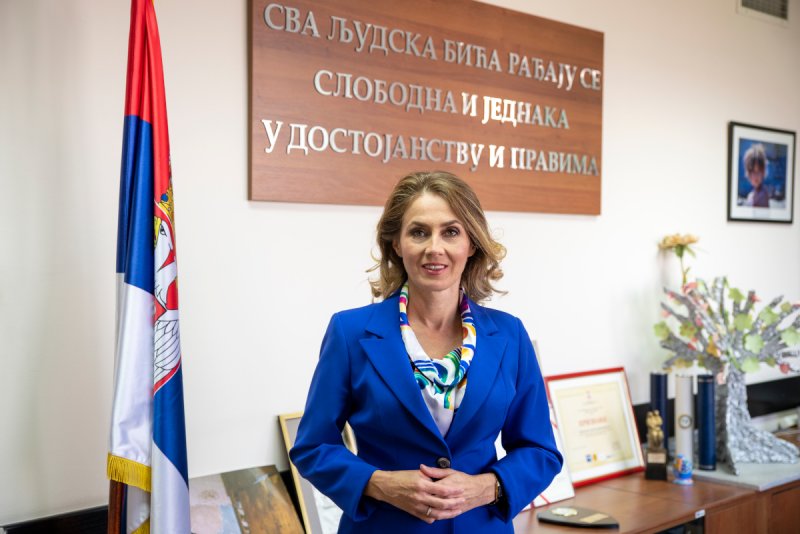What will my future look like, or who will take care of me when I get old, is a question that is asked more and more often and is important for each of us in this time of intense demographic changes. The way we treat age and older persons speaks about us as a society and our values, how much we respect the principle of equality before the law, and at the same time, about what kind of world we want to live in, said Commissioner for the Protection of Equality, Brankica Janković, on the occasion of the International Day of the Older Persons.
By 2050, the number of older persons over 65 is expected to exceed 1.6 billion globally, and in Serbia, almost every fourth person will be in that age group by 2041. The consequences of discrimination based on age are serious and far-reaching, and older persons are most often discriminated against when providing health and social care services and using public areas and transportation, as well as often insufficiently informed and digitally excluded. A large number of older persons live alone, in poverty, or at risk of becoming poor, exposed to various types of violence, neglect, self-neglect, disrespect, and marginalization.
These data should serve as a basis for changing the dominant narrative about older persons as a burden on society and, above all, creating public policies to meet the needs of older persons for support. We need to adapt to the new conditions and needs of older persons using the benefits of science and technology to ensure a reform of long-term care insurance, more innovative services, and enough support institutions that will use modern technologies in the service of the dignity and rights of older persons, as well as provision of care and support to formal and informal caregivers, said Jankovic.
The Institution of the Commissioner organizes round tables throughout Serbia to strengthen local capacities to reduce discrimination against older persons. The knowledge we gain in local communities will serve as the basis for establishing intergenerational centers in three local governments in the following year. We believe that it is extremely important that older citizens are involved as much as possible in various aspects of social life, as well as that tolerance and intergenerational solidarity and understanding are encouraged as fundamental principles of living, after all, our Pension and Disability Insurance system also rests on intergenerational charity, Janković points out.
The challenges faced by older persons, as well as innovations in long-term care, promotion of active aging, and digital literacy, will be discussed on Friday, October 4, when the conference entitled “My future – who should take care of it? Inclusive society for older persons” will be held, organized by the Institution of the Commissioner in partnership with the Office of the Attaché for Social Protection of the Republic of Austria, the UN Population Fund in Serbia, the Serbian Red Cross and the Serbian Chamber of Commerce.


